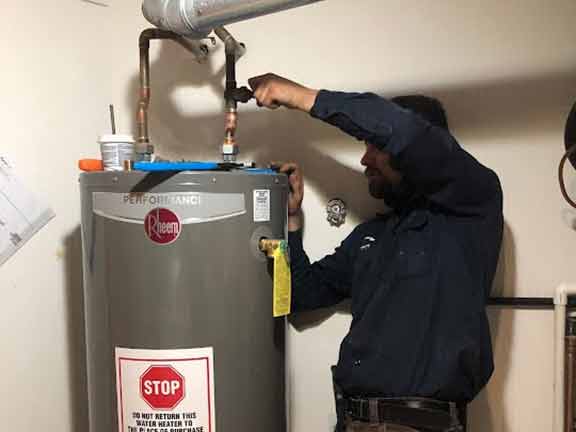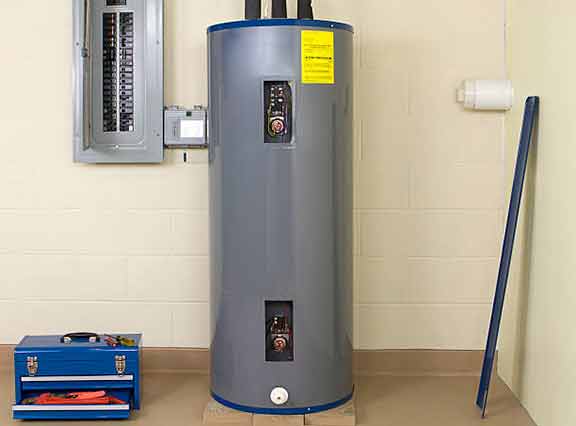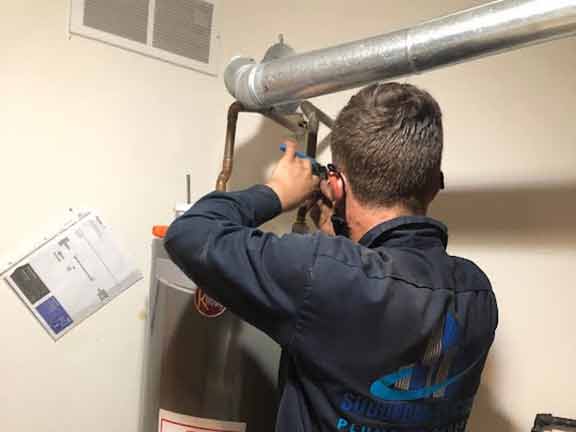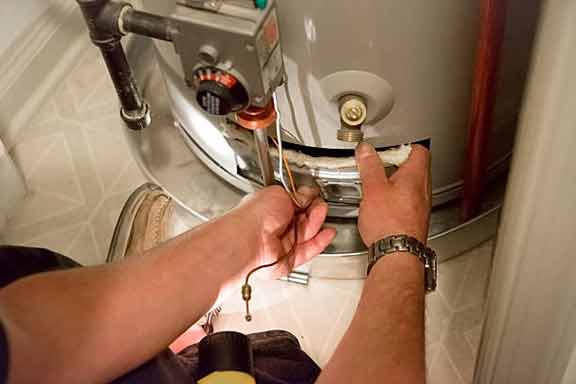
Planning for a water heater replacement in Chicago can be a daunting task, especially with the numerous options available in the market today. However, a well-thought-out plan can help you navigate through this process smoothly, ensuring that you choose the right water heater for your needs and budget. Here we will guide you through the essential steps to consider when planning for a water heater replacement in Chicago.
Evaluating Your Current Water Heater
The first step in planning for a water heater replacement is to evaluate your current water heater. Take note of its type, capacity, and age. Understanding these key factors will help you determine if it’s time for a replacement or if repairs can extend its lifespan.
Additionally, assess the performance of your current water heater. Are you getting sufficient hot water? Do you frequently experience temperature fluctuations? Assessing these aspects will help you identify any issues or shortcomings that need to be addressed with the new water heater.
Determining Your Hot Water Needs
Before purchasing a new water heater, it is crucial to determine your hot water needs. Consider the total number of people living in your household and their hot water usage patterns. Assess factors such as shower duration, laundry frequency, and dishwashing habits. This evaluation will help you choose a water heater with the appropriate capacity to meet your household’s needs.
Moreover, it’s essential to consider any future changes in your household’s size or hot water requirements. If you are planning to expand your family or add additional bathrooms, you may need to opt for a larger capacity water heater to accommodate these changes.

In Chicago, you will come across various types of water heaters, including traditional tank water heaters, tankless water heaters, and heat pump water heaters.
Researching Water Heater options
Now that you have a thorough understanding of your hot water needs, it’s time to research the different water heater options available. In Chicago, you will come across various types of water heaters, including traditional tank water heaters, tankless water heaters, and heat pump water heaters.
Each type has its advantages and disadvantages, and it’s crucial to weigh them against your specific requirements. Tank water heaters, for example, are cost-effective and readily available, but they occupy more space and have a limited lifespan compared to tankless or heat pump alternatives.
On the other hand, tankless water heaters provide endless hot water supply and are more energy-efficient. However, they are usually more expensive upfront. Heat pump water heaters are known for their energy efficiency but may not be suitable for cold climates.
Consider the pros and cons of each type and determine which one aligns best with your hot water needs, budget, and any space limitations you may have in your home.
Budgeting and Affordability
Replacing a water heater involves a financial commitment, so it’s essential to establish a budget. Determine how much you are willing to spend on a new water heater, considering both the upfront cost and long-term operating expenses.
While tank water heaters are typically more affordable compared to tankless or heat pump alternatives, they may result in higher energy bills over time. On the other hand, although tankless water heaters have higher upfront costs, they can provide long-term savings due to their energy-efficient nature.
Be sure to research and compare prices, taking into account any installation costs or potential modifications required. Additionally, look into any financial incentives or rebates offered by local or federal government programs for energy-efficient water heaters. These incentives can help offset the initial costs and make a high-quality water heater more affordable.

It’s crucial to hire a professional with experience in water heater installations to avoid any potential issues or complications.
Choosing an Installer
Once you have determined the type of water heater that suits your needs and budget, the next step is to select a professional installer. Proper installation is vital to ensure the optimal performance and longevity of your new water heater.
Research reputable Chicago plumbers who specialize in water heater installations. Read reviews, check their certifications and licenses, and ask for references from previous customers. It’s crucial to hire a professional with experience in water heater installations to avoid any potential issues or complications.
Obtain multiple quotes from different installers, considering the cost of installation and any warranties or guarantees offered. Compare the quotes and determine which installer provides the best value for money while ensuring quality workmanship.
Scheduling the Replacement
When scheduling the water heater replacement, it’s important to consider factors such as convenience and availability. It is recommended to plan the replacement during a time when you have minimal hot water requirements or when the weather is more forgiving.
Be sure to communicate with the chosen installer regarding the estimated duration of the replacement process. Depending on the complexity of the installation, it may take a few hours or even an entire day in some cases. Ensure that you make appropriate arrangements to minimize any inconvenience during this period.
Additionally, consider any necessary preparations before the replacement, such as clearing the installation area and ensuring proper access for the installer. These small steps can help expedite the replacement process and ensure a smoother overall experience.

Regular maintenance will help prevent sediment buildup, improve energy efficiency, and identify any potential issues before they escalate.
Maintaining your New Water Heater
Once the water heater replacement is complete, it’s crucial to establish a regular maintenance routine to maximize its lifespan and efficiency.
Follow the manufacturer’s guidelines regarding maintenance tasks such as flushing the tank, checking the pressure relief valve, and inspecting the anode rod. Regular maintenance will help prevent sediment buildup, improve energy efficiency, and identify any potential issues before they escalate.
Additionally, consider scheduling annual maintenance appointments with a local plumber to ensure the water heater’s optimal performance and address any maintenance or repair needs.
Wrapping it Up
Planning for a water heater replacement in Chicago involves careful evaluation of your current water heater, assessing your hot water needs, researching different water heater options, establishing a budget, choosing a reliable installer, and scheduling the replacement at a convenient time. Regular maintenance of the new water heater will help ensure its efficiency and longevity. By following these steps, you can confidently navigate the process and select the right water heater to meet your specific requirements in the windy city of Chicago.